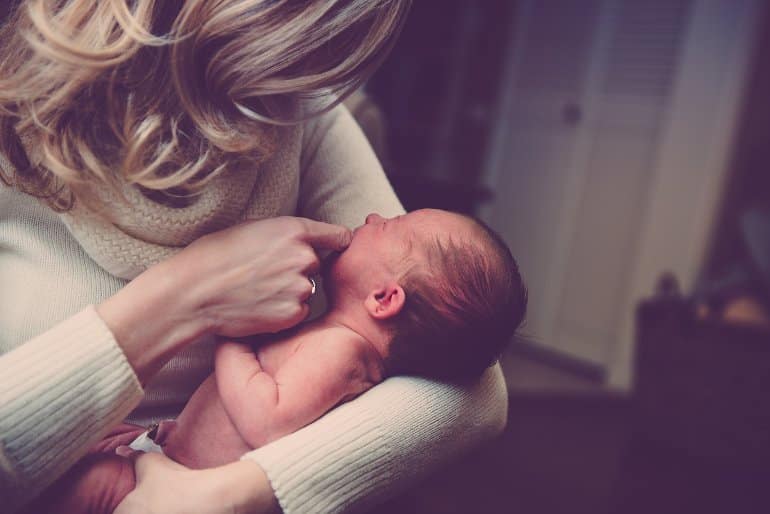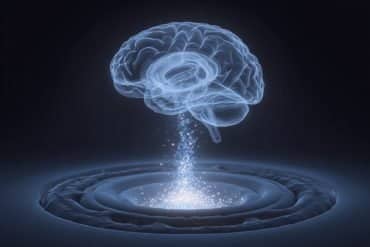Summary: A child’s weight at birth could determine their risk of being diagnosed with a mental health disorder later in life. Researchers found for every kilogram below average birth weight, the more likely a child was to experience mental health problems through childhood and adolescence.
Source: RCSI
New research from RCSI University of Medicine and Health Sciences has found that babies with larger birth weights tend to have fewer mental health and behavioural issues in childhood and adolescence.
These findings could help to identify and support children at greater risk of developing psychological problems.
The study, published in European Child & Adolescent Psychiatry, examined birth weights and subsequent mental health in thousands of children in Ireland.
Unlike many studies looking at birth weight, it used data that followed the same children repeatedly throughout their childhood and adolescence using the Growing Up in Ireland study, an ongoing government-funded study of children born between 1997 and 1998.
The analysis showed that each kilogram below the average birth weight (3.5kg, or 7lbs 11oz) was associated with more reported mental health problems throughout childhood and adolescence. The study also found that these birth-weight-linked problems tend to persist throughout childhood, from ages 9 to 17.
The type of problems most strongly linked with birth weight were inattention, impulsivity and hyperactivity, behaviours generally associated with Attention Deficit Hyperactivity Disorder (ADHD). Each kilogram drop below the average birth weight was linked with a 2% increase in risk of ADHD-like behaviours, however such behaviours were within the normal range.
That is, even among children with very low birth weights (1.5kg), the average number of ADHD symptoms would probably not meet the threshold for an ADHD diagnosis.
Lower birth weight was also linked with emotional and social problems, particularly in the late teens. These problems were found to be more severe and closer to clinical thresholds, for example for diagnosis of depression or anxiety.
Professor Mary Cannon, Professor of Psychiatric Epidemiology and Youth Mental Health at RSCI and Principal Investigator on the study, said: “We have known for many years that low birth weight and premature birth is linked with higher risk of mental illness in the child. What this study shows is that even small deviations from the typical birth weight might also be relevant.”
Niamh Dooley, PhD student and lead author of the study, said. “This relationship between birth weight and child mental health persists even after accounting for factors that could influence both birth weight and mental health, like gender, socioeconomic factors and parental history of mental illness.

“The effect of birth weight on later mental health is likely small, but it might interact with other risks like genetics and childhood stress, and have implications for understanding the origins of mental health and ill-health.”
This study shows the importance of good perinatal care and suggests that improving the overall health of women during pregnancy to ensure optimal birth weight may help reduce the risk of offspring developing mental health problems.
Children of low birth weight may benefit from psychological assessments in childhood and early intervention for mental health symptoms if detected to help minimise the burden of mental illness later in adolescence and adulthood.
Further research by the group has just been published in Research on Child and Adolescent Psychopathology. It indicates that a significant percentage of the association between birth weight and ADHD symptoms in Irish children can be explained by maternal substance-use during pregnancy (smoking, alcohol-use, non-prescription drug-use).
Funding: This research was supported by a StAR International PhD Scholarship awarded to Niamh Dooley and funding from the Health Research Board and Irish Research Council. Open Access funding was provided by the IReL Consortium. Professor Cannon is funded by a European Research Council Consolidator Award.
About this neurodevelopment and mental health research news
Author: Rosie Duffy
Source: RCSI
Contact: Rosie Duffy – RCSI
Image: The image is in the public domain
Original Research: Open access.
“The persistent effects of foetal growth on child and adolescent mental health: longitudinal evidence from a large population-based cohort” by Mary Cannon et al. European Journal of Child & Adolescent Psychiatry
Abstract
The persistent effects of foetal growth on child and adolescent mental health: longitudinal evidence from a large population-based cohort
Low birth weight for one’s gestational age is associated with higher rates of child psychopathology, however, most studies assess psychopathology cross-sectionally.
The effect of such foetal growth restriction appears to be strongest for attention problems in childhood, although adult studies have found associations with a range of outcomes, from depression to psychosis.
We explore how associations between foetal growth and psychopathology change across age, and whether they vary by sex.
We used a large nationally representative cohort of children from Ireland (N ~ 8000). Parents completed the Strengths and Difficulties Questionnaire (SDQ) at 3 time points (age 9, 13 and 17). Outcomes included a total problems scale and subscales measuring attention/hyperactivity, peer, conduct and emotional problems.
Foetal growth had significant associations with all problem scales, even after controlling for sex, socioeconomic factors and parental mental health.
The magnitude of these effects was small but relatively stable across ages 9–17. In males, foetal growth had the strongest associations with attention/hyperactivity and peer problems, whereas females showed more widespread associations with all four subscales.
There was a trend for the association between foetal growth and emotional problems to increase with advancing age, approaching the borderline-abnormal threshold by age 17.
Reduced foetal growth predicted persistently higher scores on all measured aspects of child and adolescent psychopathology. Associations with child attention/hyperactivity may generalize to a wider array of adult psychopathologies via adolescent-onset emotional problems.
Future studies should explore potential age-dependent effects of foetal growth into the early 20s.







